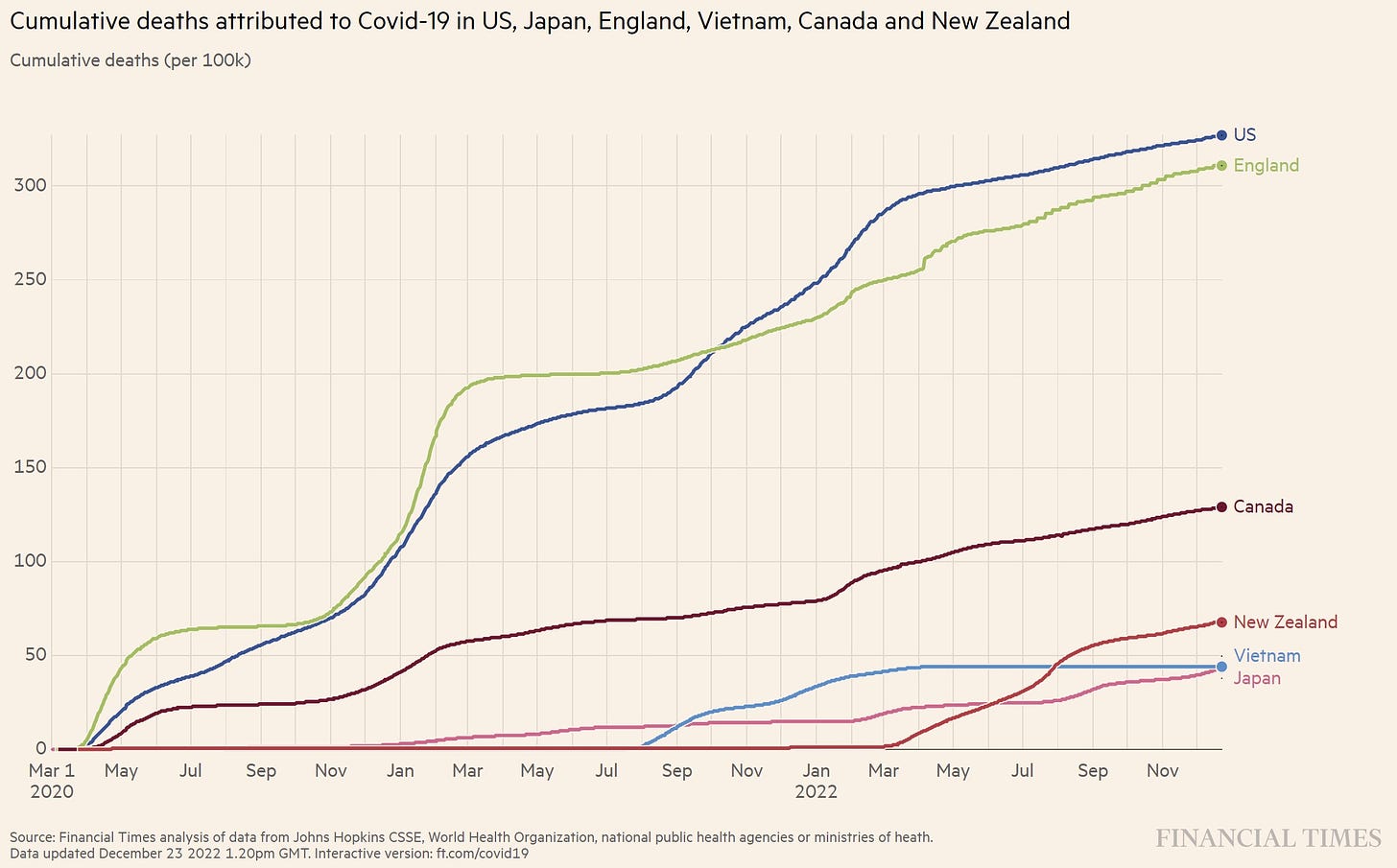A few weeks ago, Congress agreed upon a new budget for the United States. Folded into negotiations was the budget for public health, specifically COVID-19 funding. It was all slashed.
This probably makes sense to the average person. We are, of course, in a different phase of the pandemic. One that seems more manageable. Why would COVID possibly need funding?
What the average person doesn’t see is the chaos rippling throughout public health under the surface this week. This chaos is due, in part, to canceling contracts and entire programs within days—but also to an incredibly defeatist reality: the clearest sign yet that the U.S. is resorting to its roots—cycles of panic and neglect.
This cycle isn’t new.
The cycle of panic and neglect isn’t new; in fact, it even has a name. The Sisyphean Cycle was coined after Greek mythology in which Sisyphus— a “trickster who receives eternal punishment for trying to cheat death”—was condemned by the gods to roll a boulder up a steep hill for eternity. Every time he reached the top of the hill, the rock rolled back down to the bottom, forcing him to start all over again.
Sound familiar, public health world? COVID-19 wasn’t the first boulder we’ve pushed up a hill.
During the 2003 SARS epidemic, for example, a SARS vaccine was approaching phase III clinical trials. We were pushing that boulder up as quickly as possible, and the top of the hill was in sight. When SARS was (thankfully) contained, research money quickly dried up, no vaccine was made, and the boulder fell down the hill. If we had gotten that boulder to the top, a COVID-19 vaccine would have been developed a whole lot quicker 17 years later.
We in public health were truly hoping that a pandemic could change this model. Losing 1.5 million lives in the U.S. would surely change something? Perhaps public health could finally be considered in the same tier as medicine or even national security?
Doesn’t look like it.
After giving our all, we are actively watching the boulder roll back down the hill. It’s no wonder public health is made up of exhausted, demoralized souls and empty desks.
It doesn’t have to be like this.
Not every country has experienced the same level of COVID deaths during the pandemic, in part because other countries fixed this perpetual cycle. One example I love is Vietnam.
Vietnam continues to have the lowest cumulative COVID deaths in the world. This isn’t because they had a magic 8 ball. One major reason is that they learned from their previous mistakes. After an imperfect response to SARS, they changed their entire system through adequate funding and implementation of a national public health response system, core communications, and emergency capabilities. It paid off.
Why didn’t the pandemic change anything in the U.S.?
One phrase: Catch-22.
Some leaders and the public don’t see the value of investing in public health because public health didn’t do well during the pandemic. But, of course, public health couldn’t do well given a perpetually fragmented, underfunded, public health system that was then politicized. We were fighting a 21st-century health threat with a 19th-century system. Beyond a pandemic, public health works in the background, in an invisible way whose value is incredibly challenging to communicate.
Because of that, decision-makers who support public health are tasked with impossible decisions: Do we keep Medicaid expansions for millions or do we keep wastewater surveillance? I agree with keeping health insurance during this last budget negotiation, as that puts out fires today. But what about the fires in the future?
Beyond the national budget, an equally huge problem is the inability for flexible funding. The CDC, for example, has ~180 budget lines with no flexibility. They can’t move money to where it’s needed during an emergency or the aftermath of an emergency. Losing COVID money today means losing a ton of fixes we implemented in the past 3.5 years.
Congress and Congress alone can fix this.
Bottom line
Public health has brought a massive boulder up the hill for the past 3.5 years. We certainly did not do this in a perfect fashion, but I would argue we did it exactly how we were set up to in the U.S. And because of that, many people lost their lives.
It’s heartbreaking to watch the boulder go down the hill again.
Love, YLE
“Your Local Epidemiologist (YLE)” is written by Dr. Katelyn Jetelina, MPH PhD—an epidemiologist, data scientist, wife, and mom of two little girls. During the day she works at a nonpartisan health policy think tank and is a senior scientific consultant to a number of organizations, including the CDC. At night she writes this newsletter. Her main goal is to “translate” the ever-evolving public health science so that people will be well-equipped to make evidence-based decisions. This newsletter is free thanks to the generous support of fellow YLE community members. To support this effort, subscribe below:







Here's a thought... stop electing republicans who go out of their way to deny science and gut public education
I think you're trying to be measured and responsible and adult and calm and all that. And I get it. And I also get that even suggesting increased funding in this day-and-age opens you up to screeds from some sections. But... speaking as an informed (voting) citizen without nearly the expertise that you have, I think you aren't being nearly as loud and screaming as you (need? should?) could be. Again-- my somewhat uninformed opinions-- but we need to realize that we (collectively, nationally, internationally) need moon-shot level spending to identify targets, treatments, and preventatives across a range of infections agents: Corona, sure; but many other viruses, bacteria, and fungi. It's sad that COVID hasn't been the necessary wakeup call.